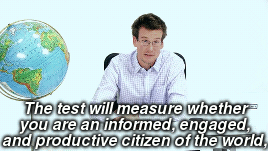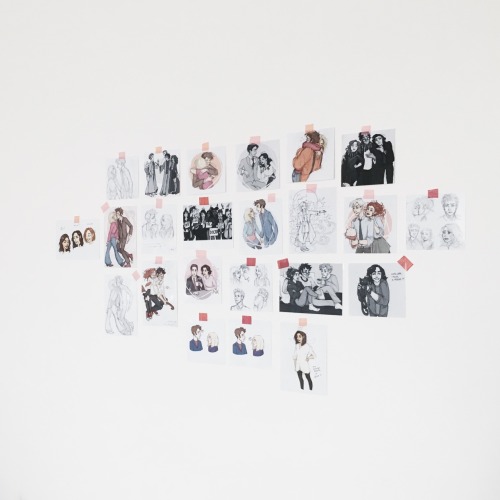'We're a grey area in a world that doesn't like grey areas'
48 posts
Latest Posts by the-grey-areas-blog - Page 2

Talent 2030 hosts an annual competition for girls aged 11-18 in the UK to involve themselves in the future of engineering. This year I entered with an essay on the use of engineering to cure cancer, and thought I’d provide the article links I used for research. It’s actually a really interesting topic to delve into if you’re curious
http://www.popsci.com/fda-approves-first-drug-that-treats-cancer-with-an-engineered-virus
http://fusion.net/story/155183/herpes-fights-cancer-virotherapy-measles-smallpox-cure-cancer/
https://www.standup2cancer.org/dream_teams/view/bioengineering_and_clinical_applications_of_circulating_tumor_cell_chip
https://www.scientificamerican.com/article/a-chip-against-cancer/



The First Dinosaur Tail Found Preserved in Amber is Covered in Feathers

“This is a reminder of what we can do when we look out for one another. Like Joe Biden and so many other Americans, I’ve lost people I love deeply to cancer. I’ve heard often from those whose loved ones are suffering from Alzheimer’s, addiction, and other debilitating diseases. Their heartbreak is real, and so we have a responsibility to respond with real solutions. This bill will make a big difference, and I look forward to signing it as soon as it reaches my desk.” —President Obama on the passage of the bipartisan 21st Century Cures Act, which includes $1.8 billion dollars for Vice President Biden’s Cancer Moonshot initiative to end cancer as we know it
![[Mitosis In Garlic Roots]](https://64.media.tumblr.com/8f107e97d6549ff315eb6aff14b4137e/tumblr_ohvmnvR8NM1vj7kdmo1_500.jpg)
![[Mitosis In Garlic Roots]](https://64.media.tumblr.com/adbd5e46f3bb41ed49c870158b591cbe/tumblr_ohvmnvR8NM1vj7kdmo2_500.jpg)
![[Mitosis In Garlic Roots]](https://64.media.tumblr.com/1e2b58752ded37c7d73d65f71b0b5ede/tumblr_ohvmnvR8NM1vj7kdmo3_500.jpg)
![[Mitosis In Garlic Roots]](https://64.media.tumblr.com/29d207c139caf42101f9a9454a18507b/tumblr_ohvmnvR8NM1vj7kdmo4_500.jpg)
[Mitosis in garlic roots]
Crash Course (Mitosis; Splitting Up Is Complicated)
that new theme feel (@themecloset the babes)
Even the sexiest person you have ever met in your life is just a collection of organic compounds rambling around in a sack of water
Hank Green (via renegade-is-in-my-blood)
Melange Mining Co, Darwin Deez
Southern Comforting, JPNSGIRLS
Thief, Eliza and the Bear
Pristine, Mantaraybryn
Forest Fire, Brighton
Monster Lead Me Home, Sara Hartman
Amy, Short Stack
Bloodsport, Raleigh Ritchie
Spirits, The Strumbellas
Khaleesi, Lisbon

Fungal tissues – the fungal mantle around the root tip and the fungal network of tendrils that penetrates the root of plants, or Hartig Net, between Pinus sylvestris plant root cells – in green. Ectomycorrhizal (ECM) fungi help trees tolerate drought and boost the productivity of bioenergy feedstock trees, including poplar and willow.
Via Berkeley Lab: The sclerotia are in the soil!
More: How Fungi Help Trees Tolerate Drought (Joint Genome Institute)
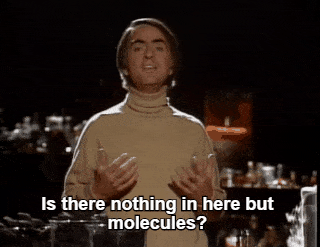
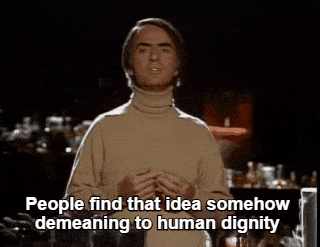
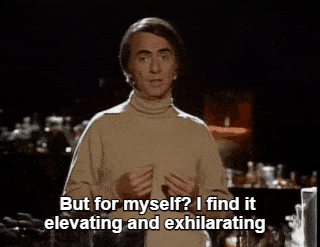
The essence of life is not the atoms and small molecules that go into us, it’s the way, the ordering, that those molecules are put together.
- Carl Sagan
i got 99 problems and a pivot is two of them




Have you ever questioned the nature of your reality?








Some people choose to see the ugliness in this world, the disarray. I choose to see the beauty. To believe there is an order to our days. A purpose.
Living and Working Aboard Station
Join us on Facebook Live for a conversation with astronaut Kate Rubins and the director of the National Institutes for Health on Tuesday, October 18 at 11:15 a.m. ET.
Astronaut Kate Rubins has conducted out of this world research aboard Earth’s only orbiting laboratory. During her time aboard the International Space Station, she became the first person to sequence DNA in space. On Tuesday, she’ll be live on Facebook with National Institute of Health director Francis Collins, who led the effort to map the human genome. You can submit questions for Kate using the hashtag #SpaceChat on Twitter, or during the live event. Here’s a primer on the science this PhD astronaut has been conducting to help inspire your questions:

Kate has a background in genomics (a branch of molecular genetics that deals with the study of genomes,specifically the identification and sequencing of their constituent genes and the application of this knowledge in medicine, pharmacy,agriculture, and other fields). When she began her tenure on the station, zero base pairs of DNA had been sequenced in space. Within just a few weeks, she and the Biomolecule Sequencer team had sequenced their one billionth base of DNA aboard the orbital platform.
“I [have a] genomics background, [so] I get really excited about that kind of stuff,” Rubins said in a downlink shortly after reaching the one billion base pairs sequenced goal.
Learn more about this achievement:
+First DNA Sequencing in Space a Game Changer
+Science in Short: One Billion Base Pairs Sequenced
Why is DNA Sequencing in Space a Big Deal?
A space-based DNA sequencer could identify microbes, diagnose diseases and understand crew member health, and potentially help detect DNA-based life elsewhere in the solar system.
+Why Sequencing DNA in Space is a Big Deal
https://youtu.be/1N0qm8HcFRI
Miss the Reddit AMA on the subject? Here’s a transcript:
+NASA AMA: We just sequenced DNA in space for the first time. Ask us anything!
NASA and Its Partnerships

We’re not doing this alone. Just like the DNA sequencing was a collaborative project with industry, so is the Eli Lilly Hard to Wet Surfaces investigation, which is a partnership between CASIS and Eli Lilly Co. In this experiment aboard the station, astronauts will study how certain materials used in the pharmaceutical industry dissolve in water while in microgravity. Results from this investigation could help improve the design of tablets that dissolve in the body to deliver drugs, thereby improving drug design for medicines used in space and on Earth. Learn more about what we and our partners are doing:
+Eli Lilly Hard to Wet Surfaces – been happening the last week and a half or so
Researchers to Test How Solids Dissolve in Space to Design Better Tablets and Pills on Earth
With our colleagues at the Stanford University School of Medicine, we’re also investigating the effects of spaceflight on stem cell-derived heart cells, specifically how heart muscle tissue, contracts, grows and changes in microgravity and how those changes vary between subjects. Understanding how heart muscle cells change in space improves efforts for studying disease, screening drugs and conducting cell replacement therapy for future space missions. Learn more:
+Heart Cells
+Weekly Recap From the Expedition Lead Scientist for Aug. 18, 2016
It’s Not Just Medicine

Kate and her crew mates have also worked on the combustion experiments.
Kate has also worked on the Bigelow Expandable Activity Module (BEAM), an experimental expandable capsule that docks with the station. As we work on our Journey to Mars, future space habitats are a necessity. BEAM, designed for Mars or other destinations, is a lightweight and relatively simple to construct solution. Kate has recently examined BEAM, currently attached to the station, to take measurements and install sensors.

Kate recently performed a harvest of the Plant RNA Regulation experiment, by removing seed cassettes and stowing them in cold stowage.

The Plant RNA Regulation investigation studies the first steps of gene expression involved in development of roots and shoots. Scientists expect to find new molecules that play a role in how plants adapt and respond to the microgravity environment of space, which provides new insight into growing plants for food and oxygen supplies on long-duration missions. Read more about the experiment:
+Plant RNA Harvest
NASA Astronaut Kate Rubins is participating in several investigations examining changes in her body as a result of living in space. Some of these changes are similar to issues experienced by our elderly on Earth; for example, bone loss (osteoporosis), cardiovascular deconditioning, immune dysfunction, and muscle atrophy. Understanding these changes and how to prevent them in astronauts off the Earth may help improve health for all of us on the Earth. In additional, the crew aboard station is also working on more generalized studies of aging.
+ Study of the effects of aging on C. elegans, a model organism for a range of biological studies.



